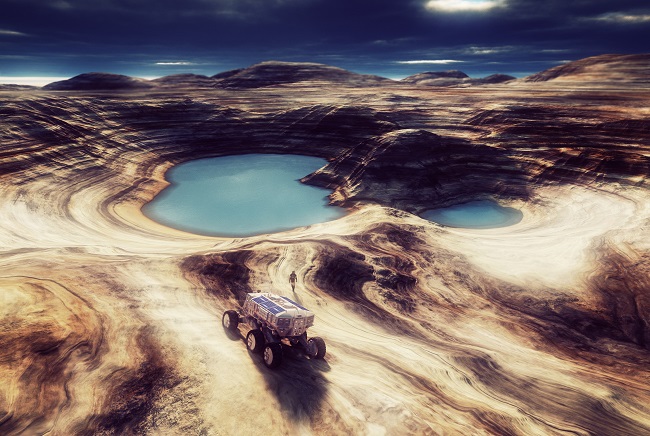Jan 08, 2026
Jan 08, 2026
As we gaze up into the night sky, who among us hasn't wondered, "Are we alone? Are there other worlds out there where life as we know it could exist?" But the question becomes even more intriguing when we turn it around: "Could we make other worlds more like our own?" This process, known as terraforming, is a subject that's long been in the domain of science fiction. But as our technology advances and our understanding of the cosmos deepens, could this concept become a reality?

Terraforming, in its most basic sense, is the hypothetical process of modifying the atmosphere, temperature, surface topography or ecology of a planet or moon to make it habitable for Earth's life forms. It's a concept that's been popularized in sci-fi novels and movies, but the idea isn't just a flight of fancy. Many scientists are seriously considering the possibilities, limitations, and ethical implications of such a venture.
Mars, our celestial neighbor, is often the prime candidate for terraforming discussions. Its proximity and similarities to Earth make it an enticing candidate for our species' first extra-terrestrial home. In 1993, NASA's Chris McKay, a leading authority on astrobiology, proposed a three-stage plan to terraform Mars. This plan involved releasing greenhouse gases to warm the planet, introducing photosynthetic organisms to convert carbon dioxide into oxygen, and eventually establishing an ecosystem of plants and animals.
However, this grand vision isn't without its challenges. For one, the time frame for terraforming Mars is predicted to be thousands, if not millions, of years. Secondly, we'd have to grapple with issues like Mars' reduced sunlight, its lack of a global magnetic field, and the ethical implications of potentially destroying any existing Martian life. Terraforming also poses questions about the kind of world we'd create. Would it be a mirror of Earth, or something altogether different?
Beyond Mars, the gas giants' icy moons – such as Europa, Enceladus, and Titan – present other intriguing possibilities for terraforming. These moons harbor vast oceans beneath their icy surfaces, and with the right technology, we could potentially create pockets of habitable environments within these alien seas.
However, it's important to note that the concept of terraforming goes beyond the physical transformation of an environment. It also touches on the very essence of humanity – our adaptability, ingenuity, and unwavering curiosity. It's a testament to our species' unique desire to explore, adapt, and make our mark on the universe.
Yet, with this grand potential comes an equal measure of responsibility. As we eye the stars with an intent to colonize, we must consider the profound ethical questions that this endeavor brings up. Do we have the right to change another world to suit our needs? What happens if we discover alien life – no matter how primitive – during the process? Could our drive to colonize lead to the spread of Earth-based lifeforms, potentially harming extra-terrestrial ecosystems?
As we stand on the precipice of becoming an interplanetary species, these questions aren't just philosophical musings, but pressing issues that we must address before embarking on such a cosmic journey.
Indeed, the concept of terraforming presents an incredible, almost mind-boggling vision of the future. But as we move forward, we must balance our thirst for exploration with respect for the universe and its potential residents.
And so, dear reader, as we ponder the notion of terraforming, I leave you with a thought-provoking question: What kind of cosmic citizens do we want to be? If we had the power to shape entire worlds, how should we wield it? Would we be benevolent guardians, careful explorers, or reckless invaders? It's a question that could very well shape not just our future among the stars, but the future of life as we know it.
Image (c) istock.com
08-Jul-2023
More by : P. Mohan Chandran